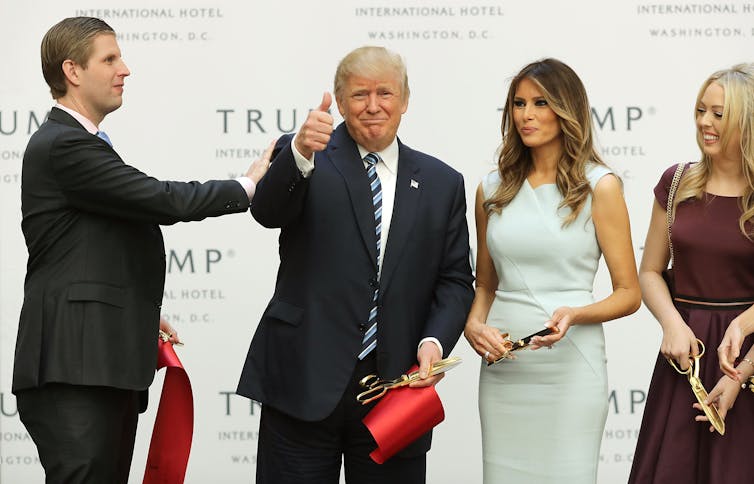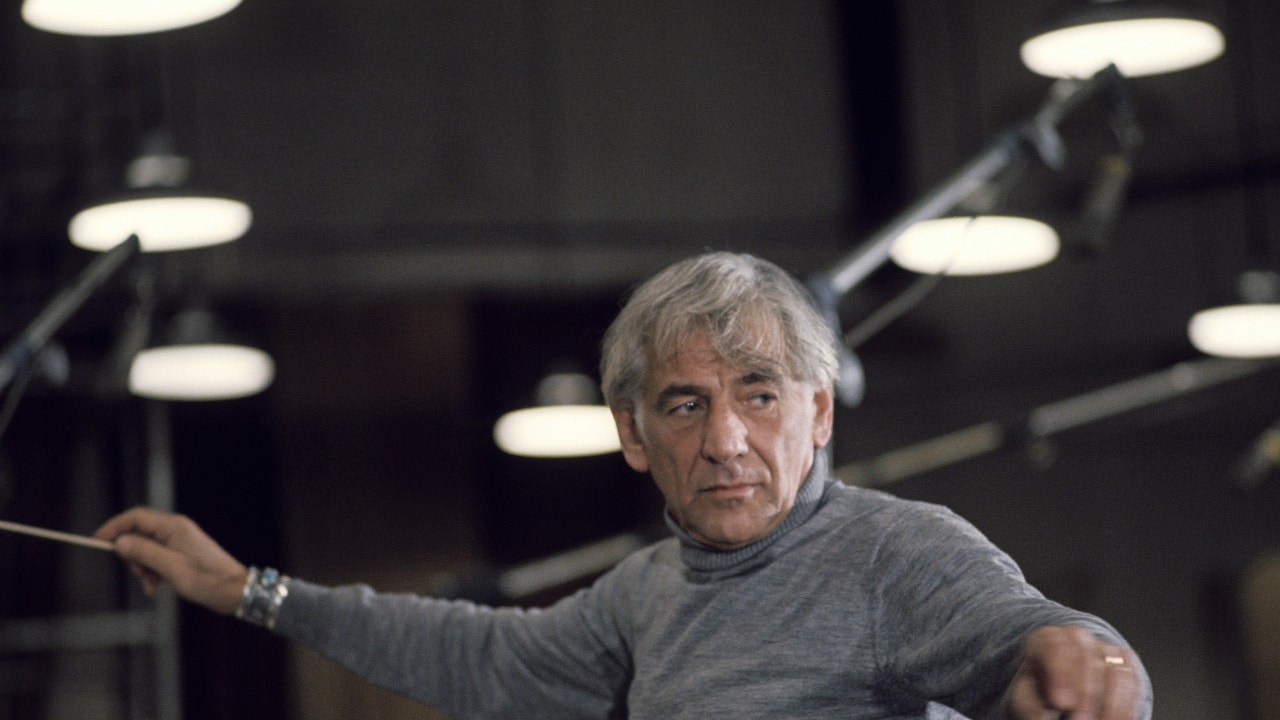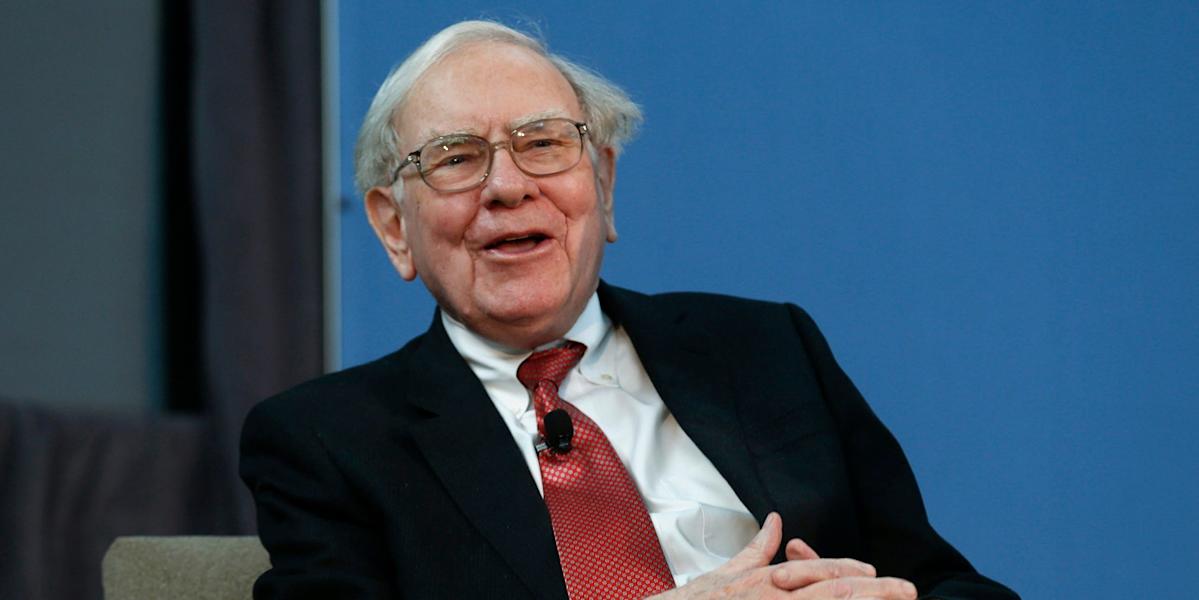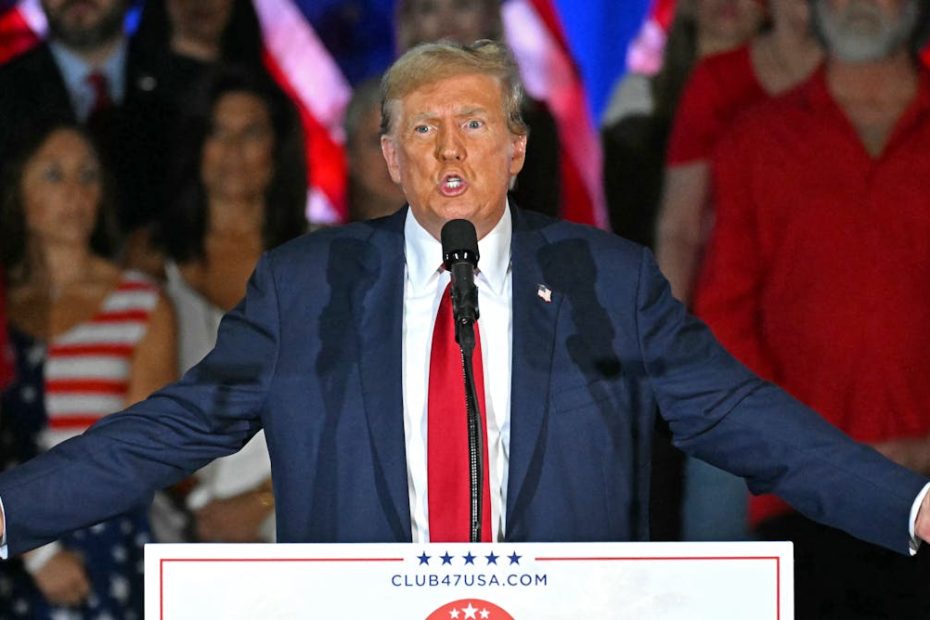We look at the aging family business incumbents who refuse to give up — here's why the 2024 race feels familiar
Succession planning is one of the biggest challenges for family businesses, with aging leaders often reluctant to relinquish power.
While we're experts on family businesses rather than politics, we couldn't help but notice striking similarities between our research and the dynamics of the 2024 campaign. For much of the campaign, the leading candidates were former presidents — both over 75 and neither willing to step aside.
As last year's campaign unfolded, both candidates were steadfast — well, we can't say we were surprised.
While Joe Biden ultimately ended his campaign under intense campaign pressure — a decision he reportedly regretted — Donald Trump remained in the race and worked his way to victory. In fact, Trump, while unique in many ways, behaves like a typical family business owner. Of course, that's what he is.
This is why the study of family businesses provides a useful perspective on current events.
What research reveals about family business leaders
Family businesses are the backbone of the U.S. economy, accounting for an estimated 90% of all businesses in the United States. Up to 40% of family businesses face succession issues at any given time, yet many avoid planning for this, choosing instead to wait for the leader to step down. By 2030, more than 30% of leaders are expected to be lost to retirement or death. The challenge of finding a successor is particularly significant when leaders are motivated by what family business researchers call a “heroic self-concept.”
People with a heroic self-concept (a concept introduced in the family business literature in 1989) believe that they have a heroic mission and derive a sense of heroic status from their attachment to a leadership role. Historical examples include Winston Churchill and Theodore Roosevelt. From a business perspective, think of Richard Branson at Virgin, or Steve Jobs at Apple.
Although anyone can be a hero, not everyone has a heroic self-concept. In our recent study of more than 1,000 family business leaders (785 men and 263 women), we found that male family business leaders, but not women, were motivated by a heroic self-concept.
Our work is inspired by “precarious masculinity theory,” a concept from social psychology that posits masculinity as a status that men must strive to achieve. It is hard won, easily lost, and must be continually proven.
Our findings suggest that “letting go” is a particularly worrisome issue for male leaders for precisely this reason: They are more likely to feel the need to continually pursue a heroic calling and cultivate their own heroic status.
Trump is the patriarch of the family business
Trump has a long history as a family business leader and he provides a natural extension for our work. He spent his entire career cultivating a heroic image. He has consistently emphasized his business success, portraying himself as a dealmaker, a winner and a man with a mission.
While it's worth noting that this analysis is based on our findings and does not represent a clinical assessment, we believe Trump's reluctance to let go illustrates three key insights from family business research.
First, family business leaders are motivated by a sense of unfinished business. Trump’s slogan “Make America Great Again” speaks to this heroic mission. According to the theory of precarious masculinity, heroic calling is an achieved status that must be continually condemned through risk-taking, competitive aggression, and other masculine behaviors.
At the same time, research shows that family business leaders tend not to talk about leaving their jobs and avoid planning for retirement. Their average tenure is much longer than that of non-family CEOs—private company CEOs average about 9 years longer than public company CEOs and about 20 years longer than public company CEOs. . After retirement, they often crave lost status.
Likewise, Trump sees his return as a necessary step to finish his unfinished business and solidify his legacy. Running for office again puts Trump back in the spotlight, regaining his voice and strengthening his image.

Chip Somodevilla/Getty Images
Second, when older leaders remain in power, frustrated successors become casualties. Aging leaders’ reluctance to leave can discourage potential successors from joining or staying in the business, leading to talent attrition. Uncertainty about the timing of the succession process, coupled with the perception that the leader may never fully relinquish control, can leave potential successors frustrated and resentful, feeling their ambitions have been curbed.
We believe this trend is not limited to family businesses but can also be seen in the U.S. government. When leaders are unwilling to give up, it can cause potential successors to look for opportunities elsewhere, creating a shortage of qualified leaders. It can also prevent the introduction of new ideas and innovations, making it difficult for businesses to adapt to change. This is classic institutional drama played out in gerontological government. It's perhaps no coincidence that Democrats face similar concerns.
However, while this trend can cause long-term problems for institutions, insiders are often complicit. There is little evidence that Trump’s family or party want or expect him to step down. Likewise, we find that when leaders prioritize personal needs for control and status, family members, supporters, employees, and colleagues often avoid the issue entirely, suppressing their true perspectives.
Our research also shows that leaders' long-term pursuit of immortality may strain family unity. Evidence of this for Trump could include previous defections from the administration by members of Trump's family and team.
Our study adds nuance to the body of research showing that older male leaders are immersed in social expectations of men that value “younger” masculine behaviors and identities. This leaves them with little to guide or inspire their behavior later in life. The constant pressure on men to prove their worth and masculinity can cause them to become strongly attached to the status and identity they gain as leaders.
The effects of leadership, succession dynamics, and hero self-concept that we examine are not limited to boardrooms. They play out on a larger stage, influencing the decisions and actions of individuals with enormous power, even on a national and global scale.
Around the world, national leaders are getting older. Makes us wonder why they don't let go.







